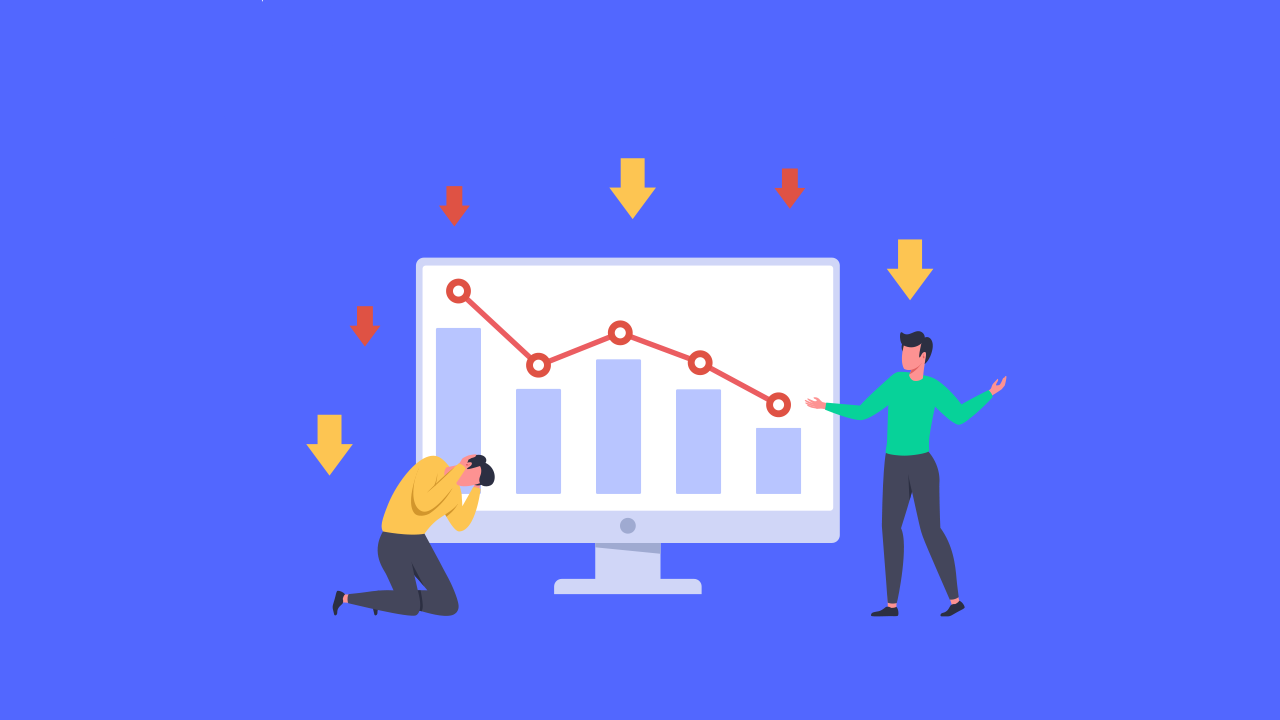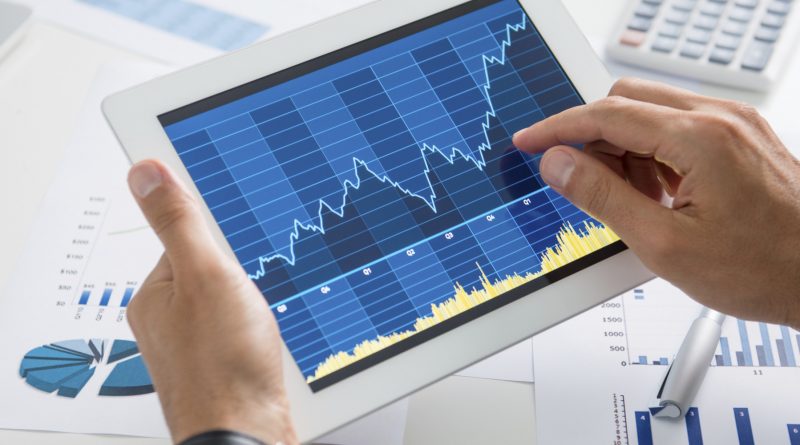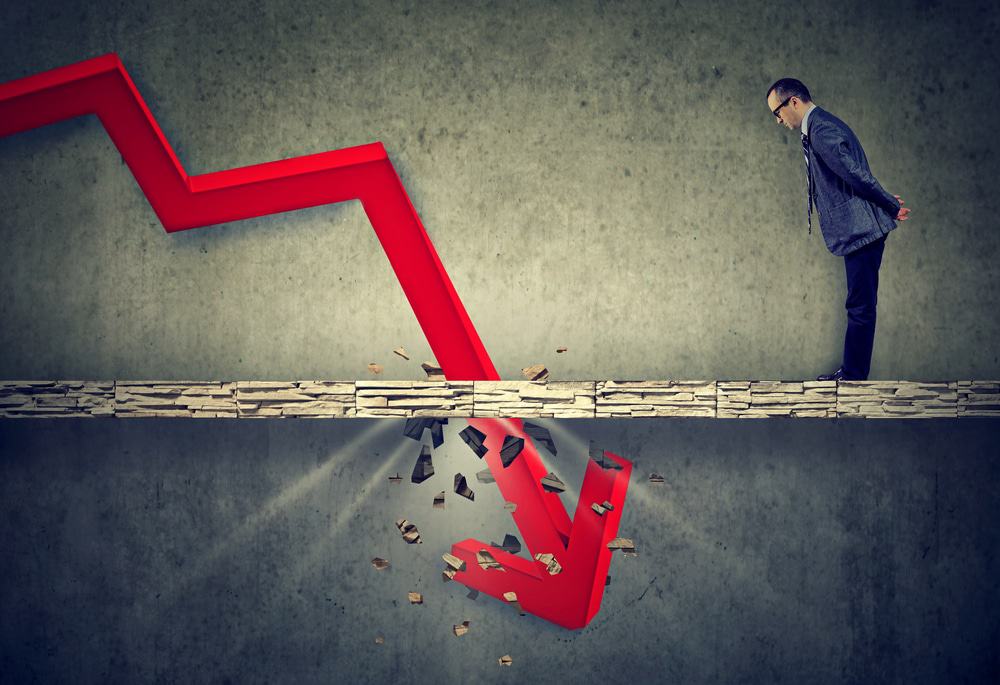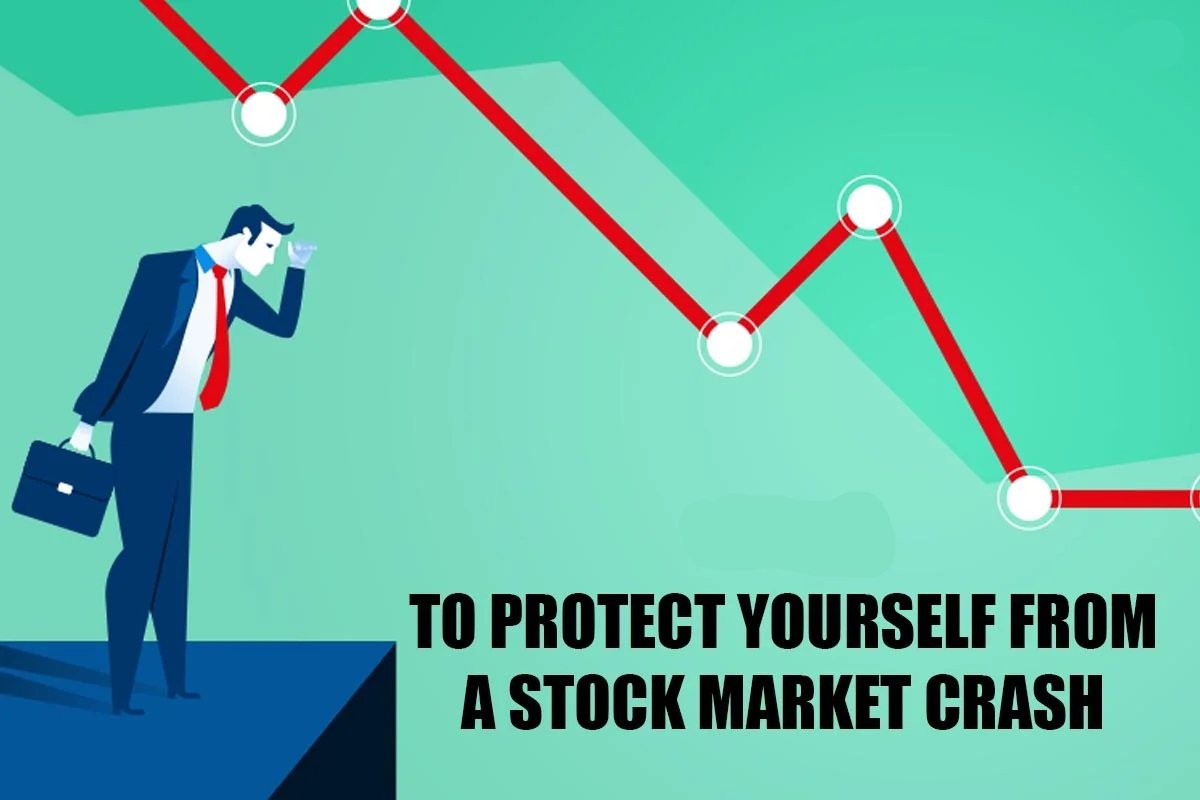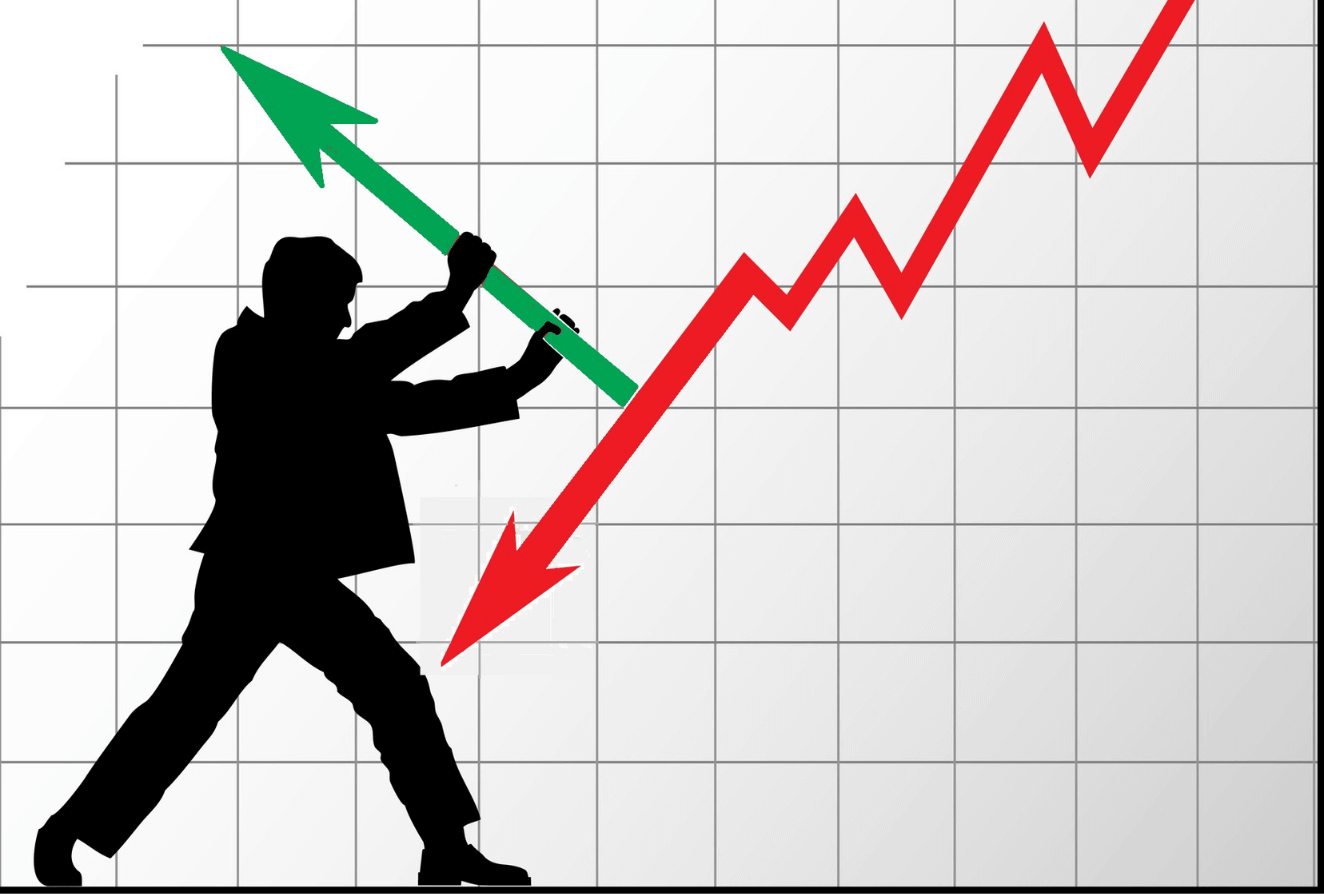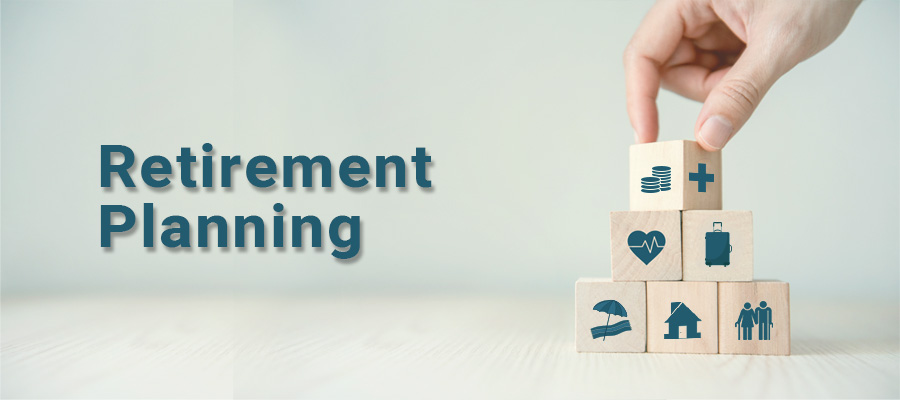Picture this: You’ve watched your investments grow, and then, out of the blue, the numbers start to dive. The culprit? More often than not, it’s economic factors causing stock market crash. I dive deep, past the headlines and panic, to unpack the real triggers behind those heart-dropping moments when the stock ticker turns red. We’ll explore key recession indicators that impact stocks, while interest rates and inflation play villain in this market drama. Join me as we unravel the sometimes invisible threads that signal trouble in the financial fabric, from the gritty policy decisions that sway fortunes to the bubbles we don’t see until they burst. Stick with me, and I’ll show you the signs so you can brace for impact, or better yet, navigate the storms of market mayhem like a pro.
Unraveling the Threads of Recession: Key Indicators and Stock Performance
The Onset of Economic Slowdown: Recession Indicators and GDP Decline
Why do economies slow down? Key signs include falling GDP and high jobless rates. Let’s dive in with GDP, or Gross Domestic Product. It’s like a country’s paycheck. If GDP drops, it’s a big red flag. Fewer goods are made, and less money flows. This scares investors, as a sinking GDP often hints at a recession.
But here’s more. When many people lose their jobs, they spend less. Big drops in spending can drag stocks down hard. This is linked to something we call consumer confidence. If it’s low, people worry more and buy less. And if folks don’t buy, companies earn less, which can send stocks tumbling.
Interest Rate Hikes and Inflation: A Dual Threat to Equity Markets
Think of inflation like a sneaky thief, stealing the worth of your money. When prices rise fast, living gets harder. To fight this, the Federal Reserve can hike interest rates. It makes borrowing pricier. This move can cool inflation, but too much of it can hurt stocks. Why? High interest rates can mean costly loans for homes, cars, and business gear.
Investing seems less appealing when rates jump. Better returns now come from safer places, like bonds, not stocks. This shift can pull money out of stocks and cause prices to crash.
Imagine you’re running a business. Suddenly, loans cost more, and your things cost more. Tough, right? You might slow down on making stuff or hiring. People might even spend less. All these can scare stock buyers, leading to less demand for your shares and dropping prices.
In summary, stock markets hate surprises. Hard times like recessions, or even fear of them, can shake things up fast. They make investors run for the hills. Look at these key signs – GDP and jobs for economic health, interest rates, and inflation for cost-of-living. They are crucial ties binding the economy to the ups and downs of the stock market. Keep your eyes on them, and you’re better equipped for whatever the market throws your way.
The Fed’s Tightrope Walk: Policy Decisions and Market Reactions
Deciphering Federal Reserve Policies and Their Market Impacts
The Fed has a big job. It works to keep our economy stable. How? By adjusting policies. These changes can help or hurt the stock market. When folks talk about “the Fed,” they’re discussing the Federal Reserve. This is our central bank in the U.S. It has two main goals: control inflation and make sure we have jobs. How does the Fed hit these targets? Interest rates are key. They rise and fall based on what the Fed decides. Lower rates can boost spending and jobs. But if rates are too low, prices for stuff we buy every day may soar.
Higher interest rates work against inflation but can slow spending. This can lead to job losses. We saw this during the pandemic. Rates were super low to help the economy. Now, they’re going up to cool down high prices. So, when the Fed changes rates, stocks feel it. They may rise if rates drop. They may fall if rates go up. This is because costlier borrowing can lead to lower profits for companies.
Quantitative Easing’s End and The Implications of Tightening Monetary Policy
Let’s talk about a big word: quantitative easing, or QE. It’s like a giant money pump. The Fed puts more cash into our economy. It does this when things look rough, like a big drop in jobs or a weak economy. QE can help lower interest rates. It can make it easier to borrow money. This is good for stocks, as it can lead to higher prices and more jobs.
But all parties must end, including QE. When the Fed stops QE, they’re doing what’s called tightening monetary policy. This means they’re making it a bit harder to get money. They’re kind of saying, “Okay, we helped enough. Time to get the economy to run on its own.” Ending QE can make stock prices wobble. This is because it can make it tougher for companies to get cheap money. If borrowing costs more, companies can’t grow as quick. As a result, stocks might dip, worrying investors.
The Fed walks a tightrope. It must balance growth with keeping prices stable. Get it right, and the economy hums along. Get it wrong, and we could see a shaky stock market. Keep an eye on what the Fed does. It’ll give you clues about where stocks might head next.
The Fed’s moves can send ripples through our wallets and the nation’s jobs. So next time you hear about the Fed doing something new, you’ll know it’s a big deal. The stock market listens closely to what the Fed says. And so should we, to stay in tune with our money and jobs.
Sentiment and Speculation: Behavioral Economics in the Stock Market
Investor Sentiment and Its Influence on Market Trends
How we feel about the economy sways how we act in the stock market. Think of investor sentiment like the mood at a party. When folks are giddy, stocks often rise. Gloomy vibes might make stocks fall. It’s not just facts and figures that count. Our gut feelings play a big part. They can push prices up, or pull them down fast.
Good news can lift our spirits. Say company earnings look great – we buy stocks. Now picture sour news. An interest rate hike, for instance. We panic, sell, and prices might tumble. People’s moods can make or break the market.
Deep down, our choices are not just about dollars and cents. We chase wins and dodge losses. We follow the crowd or bet on a hunch. All this sentiment shapes where the market sails.
Market Speculation and Credit Market Health: Precursors to Uncertainty
Let’s talk about market speculation and credit health. They’re signs of what might come. Guessing which way stocks will go, that’s speculation. Folks might think prices will soar – they buy on credit, hoping for easy cash. But this can be risky. Like betting more than you have.
Credit health tells us if loans might turn sour. A healthy credit market means more cash flows easy. People and firms can borrow without fuss. But a credit crunch is like a dry spell. Money flows slow down. Loans get pricey or vanish.
Think of it this way. Too much guesswork and shaky loans can rock our boat. When people bet wrong, stocks can nosedive. Bad loans add to the mess. Heard of the housing bubble burst? Just like that. Bad bets and too much borrowing – it all crashed.
A grim credit scene can spook folks. Banks get nervous, and tighten up loans. Then we feel the pinch. Projects stall. Jobs might go. Businesses can’t grow when the credit wells run dry.
Market speculation and credit health link up. Together, they spell confidence or crisis. Tiny ripples of doubt can bubble into big trouble. When these signals spell danger, savvy investors take note. They might ease off or brace for bumps.
Investor moods and credit health. Two faces of the market’s future. They’re a mix of money moves and human quirks. Watch them close. They’re clues to what might lie ahead. When the party’s mood shifts, the smart players tune in. They know sentiment and speculation hint at what’s next. They’re big pieces of the stock market puzzle.
When Bubbles Burst: Analyzing Market Vulnerabilities
Housing Market Bubbles and Leveraged Investment Risks
Think of housing market bubbles as balloons. They grow when people keep buying houses, thinking prices will always go up. When they burst, it’s like a loud pop that scares everyone. Lots of folks borrow money, betting that home prices will rise. But when prices fall, they owe more than their homes are worth. This is risky and can lead to big money problems.
Remember the game of dominoes? One tips over and they all start falling. That’s like our economy. When house prices fall, it hits banks, builders, and even regular people hard. Everyone feels it. Less building, less spending, and more worry.
The Domino Effect: Asset Bubbles Burst and the Impact on Global Markets
Asset bubbles can be about more than houses – think of tech stocks or gold. When everyone rushes to buy, prices shoot up fast. This is a bubble. But when people start to sell, prices can drop just as quick. If enough people panic, it’s like a stampede out of the market. This crash hits everyone. Jobs can be lost, businesses close, and things can look pretty grim.
When bubbles burst, it’s not just one place that’s affected. Folks all over the world feel the shake. Money gets tight. People buy less and businesses make less. This can lead to a big mess that takes a while to clean up.
We saw this when the big housing bubble popped back in 2008. It wasn’t just the U.S. – the whole world felt a chill. Jobs got scarce, and many people found it tougher to pay bills or buy things they needed.
What’s tricky is knowing when a bubble will pop. We look at how fast prices rise and ask if it makes sense. We check if folks are borrowing too much to buy things like houses or stocks. We try to be ready for the pop, so it doesn’t catch us off guard.
Now, things seem shaky again with talks about houses costing too much and folks taking big loans. Is another bubble growing? Maybe. We watch signs like how much stuff costs, if people have jobs, and what big money folks like the Fed do.
But no matter how much we watch and plan, sometimes a bubble just surprises us. The key is not to panic. We need to make smart choices and be ready for a bumpy ride. Because, after all, what goes up must come down – but we can learn to land on our feet.
In this post, we pulled apart the key signs of a recession and how they hit stocks. We looked at how a slow economy and smaller GDP can warn us of tough times. Then, we delved into the tough spot inflation and higher interest rates put on shares.
We explored the Fed’s policy moves and how they sway the market. We found out how the Fed’s end to easy money affects everyone. We also saw how people’s feelings and guesses play a big part in stocks.
Lastly, we busted myths on market risks and saw how a housing crash can spread far. We learned how these bubbles pop and shake up the world’s money scene.
To wrap up, knowing these things helps us make sense of the market. It shows us that what the Fed does, how we feel, and risky bets can stir up trouble. So, let’s keep an eye on these signs to be smart with our money. Remember, knowledge is your best tool in a shaky market. Keep learning, stay aware, and plan your next move with care.
Q&A :
What are the primary economic factors that trigger a stock market crash?
Economic factors that can trigger a stock market crash include high inflation rates, rising interest rates set by central banks, a sudden economic downturn or recession, excessive debt levels, currency crises, and the bursting of asset bubbles. Investor sentiment plays a critical role, and when negative, can compound these issues, leading to rapid sell-offs in the market.
How do interest rate changes affect the stock market and potentially lead to a crash?
Changing interest rates, especially increases by the central bank, can lead to a stock market crash by making borrowing more expensive for businesses and consumers. This can reduce consumer spending and corporate profits, leading to a pessimistic outlook on the economy. As investors sell off their stocks in anticipation of lower profits, the market can experience a significant downturn.
Can inflation have a direct impact on the stock market’s stability?
Inflation can directly impact the stock market’s stability by eroding the purchasing power of consumers, leading to decreased sales and profits for companies. High inflation typically results in higher interest rates to control the money supply, which can also dampen investment and economic growth, contributing to market crashes.
In what ways do global economic events influence stock market crashes?
Global economic events, such as international trade wars, geopolitical conflicts, and global pandemics, can significantly influence stock markets. Uncertainty and fear stemming from these events can lead to decreased investor confidence and subsequent market volatility. As global economies are increasingly interconnected, an economic shock in one part of the world can quickly spread to other markets, resulting in a widespread crash.
What role does investor sentiment play in exacerbating a stock market crash?
Investor sentiment is a key factor in the stock market’s movements. When investors collectively begin to lose confidence in the market, whether due to economic indicators, business news, or geopolitical unrest, they may panic and sell their holdings, prompting others to do the same in a domino effect. This mass sell-off can rapidly drive down stock prices and result in a market crash. Fear, uncertainty, and herd behavior can significantly exacerbate the severity of a crash.

